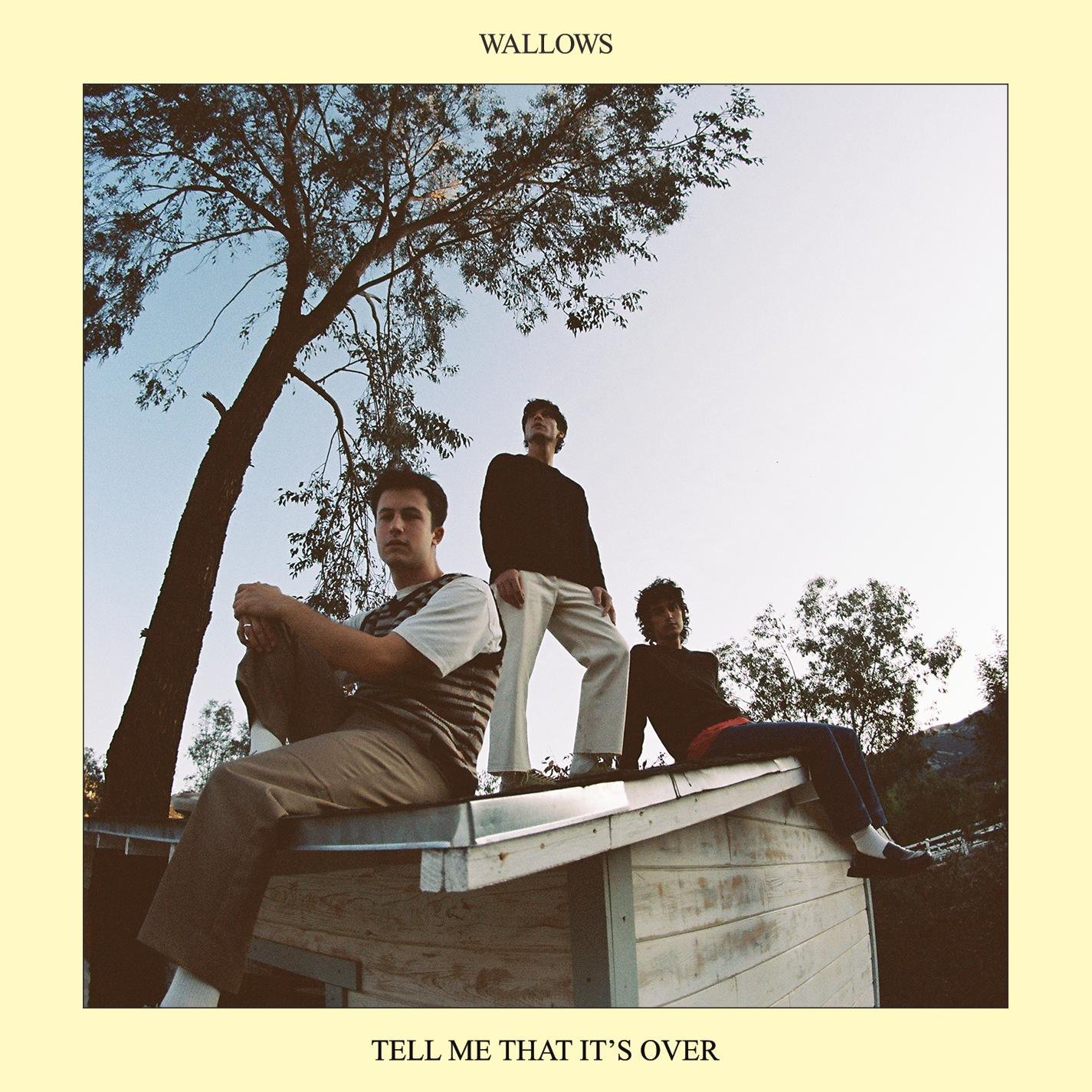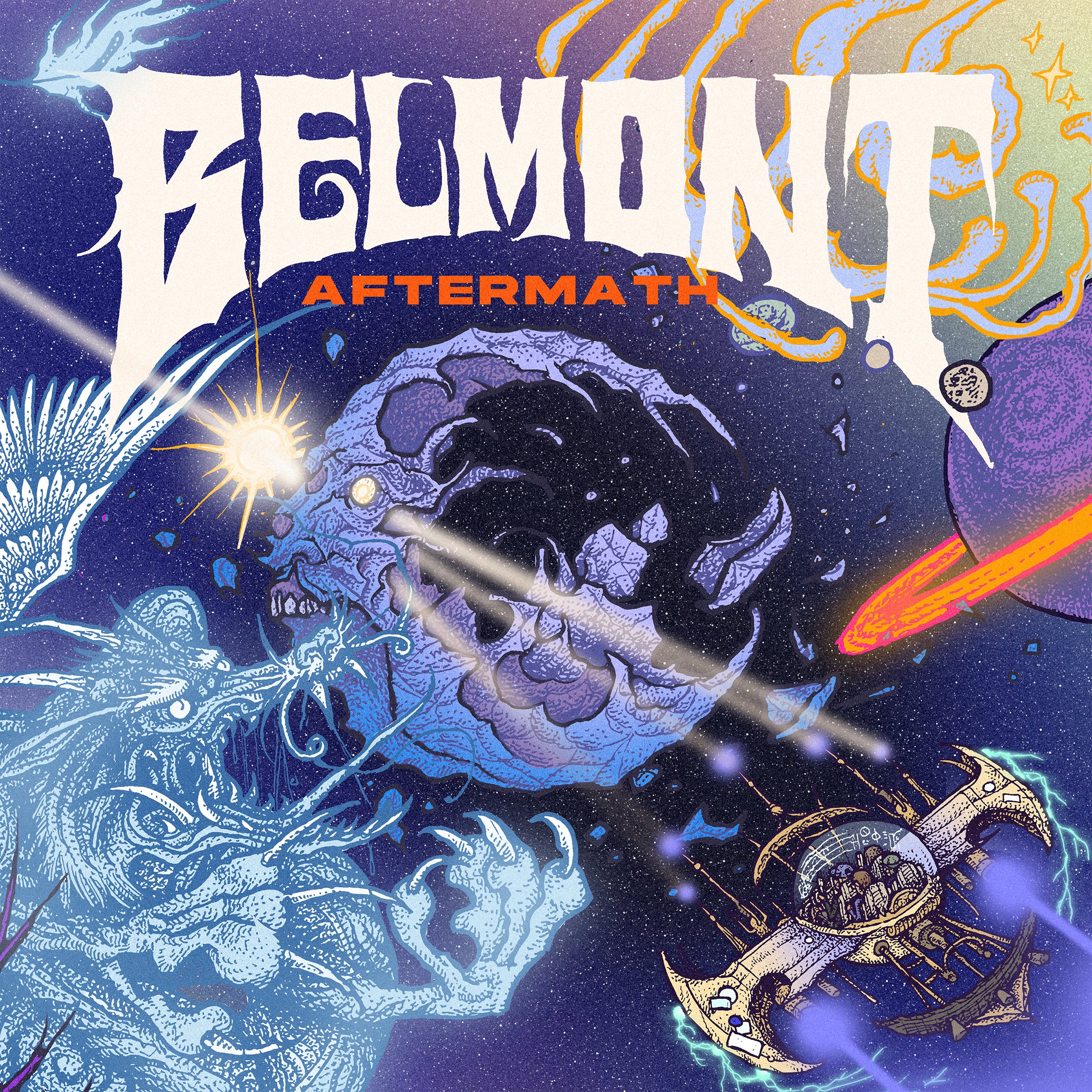by emma schoors
Tell Me That It’s Over is Wallows’ farthest reaching sonic landscape to date.
It’s a beautiful, April afternoon in Southern California, and Wallows is prepping to release their debut EP, Spring, with a corresponding show at Amoeba Records in Los Angeles. The “Upcoming In-Stores” marquee outside spells their name in thick, black lettering, among bands like The Voidz and The Motels. While herds of cars in LA traffic inch to their destinations, Wallows fans delve into the band’s 6-song masterpiece for the first time. Songs like “It’s Only Right” and “Ground” leave listeners breathless, and it feels almost criminal that the band hasn’t reached the ears of the general public yet. There’s an unspoken understanding that Wallows is destined for the biggest stages this world has to offer.
The second their summery debut record, Nothing Happens is released, the world catches onto the glittering genius that is Dylan Minnette, Cole Preston, and Braeden Lemasters. Millions of monthly listeners flood in, and Wallows shows grow into massive gatherings of electrified fans. “Just wait until Treacherous Doctor,” a fan beside me says at one of these concerts, pointing knowingly towards the circles of fans feeding off each other’s energy. As if on cue, the room goes wild. This intensity seems like it’s going to last forever, but 2020 brings a fierce dilemma for Wallows. They’re stuck at home, unable to perform, in the midst of the biggest success of their lives. What happens next? The machine is bound to power down, but it doesn’t. The band pumps out OK and Remote, the latter recorded remotely, and it’s their best work yet.
Wallows could have taken years off to prepare their sophomore record, but that’s thankfully never been their thing. Tell Me That It’s Over starts with a surprise, as a single like “I Don’t Want To Talk” or “Especially You” isn’t chosen as the first track. “Hard To Believe” is a complete 180 from “Only Friend.” The latter is padded with guitars, yet utterly naked in the lyric department. Minnette hammers down the album’s key themes within the first few minutes with a simple inquiry: “When it’s all said and done, will you need me, too?” What the trio’s debut provided in vulnerability has not at all subsided, and “Hard To Believe” touches down with the same rawness, executed in a completely different way. “I just want to breathe,” Minnette sings, “Is that so hard to believe?”
“I Don’t Want To Talk” is a tale of two completely different worlds. The main hook is bright and colorful, while the lyrics detail a world of anxiety. “Especially You” continues this confusion: “Some things leave me confused, but especially you.” These two tracks back to back are more radio friendly moments on the album. They’re a welcome bit of ear candy, while still prioritizing meaningful lyrics.
“There’s a lot of stuff on this new album that’s super familiar for our fans, and very easy to digest, and then there’s, I think, things that challenge our fans,” Minnette told Apple Music’s Zane Lowe in Sep. 2021. “It feels like we have some of our heavy stuff and some of our poppy stuff at the same time. It feels a little all over the place, but in a way that somehow feels like it’s completely part of the same entity.” Minnette described the record’s feel perfectly, as “At The End Of The Day” is a curveball. Lemasters take hold of the vocals, almost whispering, “Can you see ourselves in love like this forever?” The chorus is addictive and feels almost circular, as Lemasters plays around with different melodies. It’s crystal clear the band has mastered their instruments, and are now experimenting with decades worth of inspiration.
A definite highlight of the record is “Marvelous.” Something that drew listeners into the band’s debut album was its naivety and focus on growing up as a motif, and this record is more in tune with the pressures of adult life. To have a moment of renewed naivety, while keeping with more realistic themes, is utter bliss. Minnette’s voice has naturally matured over the years, and he navigates difficult melodies with absolute ease in this track. It’s a great example of how the band has improved with each release, but kept their ability to write a truly fun song. Lydia Night lends her gorgeous vocals to “Permanent Price,” a track that spotlights Preston’s drumming. “Missing Out” is heavy, melodic, and experimental, and one of the more challenging tracks, while “Hurts Me” is a synth-pop dream. “I know myself better than you do,” Lemasters notes, later flipping the script and singing, “You know yourself better than I do.”
“That’s What I Get” is one of the band’s most unpredictable tracks. It starts slow, churning through lyrics of uncertainty. As soon as the second chorus hits, the entire mood changes. Two sudden bursts of sound emerge as Lemasters sings the first line, but they don’t repeat in the second line. Suddenly, one burst occurs, and doesn’t repeat in the fourth line. This listening experience is confusing at first, but ultimately shows how much the band has improved. They’ve entered a phase in their career where nothing is off the rails, and everything is on the table. It’s an incredible thing to hear. The record ends with “Guitar Romantic Search Adventure,” which, like every Wallows track, experiences a complete rebirth about halfway through. This band is rich with ideas, and it’s evident in everything they do.
Everything about Tell Me That It’s Over screams Wallows, yet it is a complete change from previous releases. Wallows has shape-shifted as a musical entity nearly every year for the past five years, and 2022 has been their best year in music yet.






